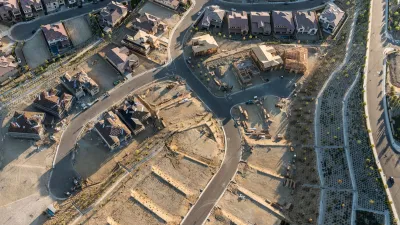A draft plan outlines suggested actions to build resilience, minimize carbon emissions, and protect vulnerable residents from extreme weather events.

The Portland City Council has released a draft 43-step plan to address the city’s climate emergency, declared in 2020. According to an article in Smart Cities Dive by Maria Rachal, the final plan will serve as the city’s climate action plan until 2025.
The plan seeks to target local emissions linked to electricity supply, buildings, transportation, and industry. It also attempts to minimize carbon related to the consumption of food, goods and materials; sequester carbon in trees and green spaces; and build community resilience to the impacts of climate change, particularly among the most vulnerable people.
“The city has two main carbon-reduction targets: cut carbon dioxide emissions 50% or more from 1990 levels by 2030 and achieve net-zero carbon emissions by 2050.” Priority actions listed in the plan include investments in community-owned renewable power generation, energy-efficient retrofits on multifamily buildings, and ‘resilience centers’ built to protect residents during extreme weather, power outages, and other emergencies.
According to Rachal, “The work plan’s steps are not currently binding and have yet to be funded. Over the next three years, city bureaus and departments are to request funding and approvals from the city council.”
FULL STORY: To address its climate emergency, Portland, Oregon, lays out a 43-step plan

Maui's Vacation Rental Debate Turns Ugly
Verbal attacks, misinformation campaigns and fistfights plague a high-stakes debate to convert thousands of vacation rentals into long-term housing.

Planetizen Federal Action Tracker
A weekly monitor of how Trump’s orders and actions are impacting planners and planning in America.

In Urban Planning, AI Prompting Could be the New Design Thinking
Creativity has long been key to great urban design. What if we see AI as our new creative partner?

Pedestrian Deaths Drop, Remain Twice as High as in 2009
Fatalities declined by 4 percent in 2024, but the U.S. is still nowhere close to ‘Vision Zero.’

King County Supportive Housing Program Offers Hope for Unhoused Residents
The county is taking a ‘Housing First’ approach that prioritizes getting people into housing, then offering wraparound supportive services.

Researchers Use AI to Get Clearer Picture of US Housing
Analysts are using artificial intelligence to supercharge their research by allowing them to comb through data faster. Though these AI tools can be error prone, they save time and housing researchers are optimistic about the future.
Urban Design for Planners 1: Software Tools
This six-course series explores essential urban design concepts using open source software and equips planners with the tools they need to participate fully in the urban design process.
Planning for Universal Design
Learn the tools for implementing Universal Design in planning regulations.
planning NEXT
Appalachian Highlands Housing Partners
Mpact (founded as Rail~Volution)
City of Camden Redevelopment Agency
City of Astoria
City of Portland
City of Laramie





























